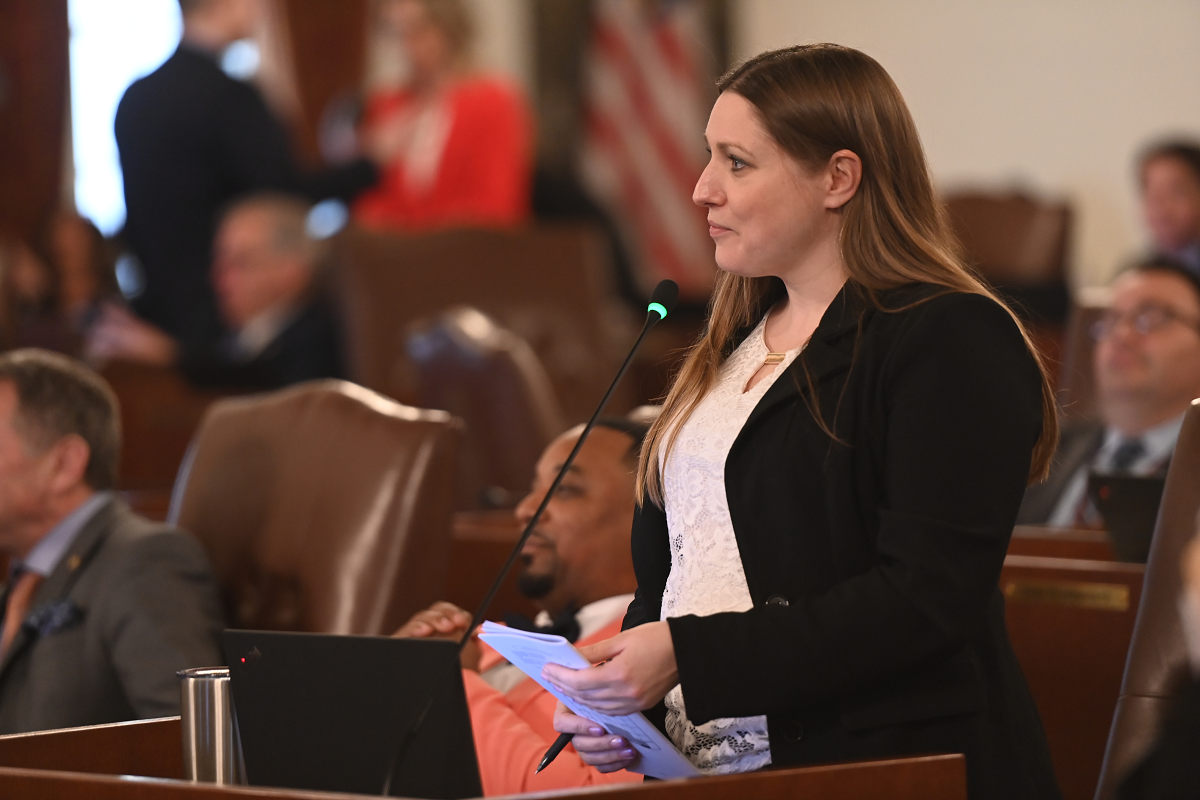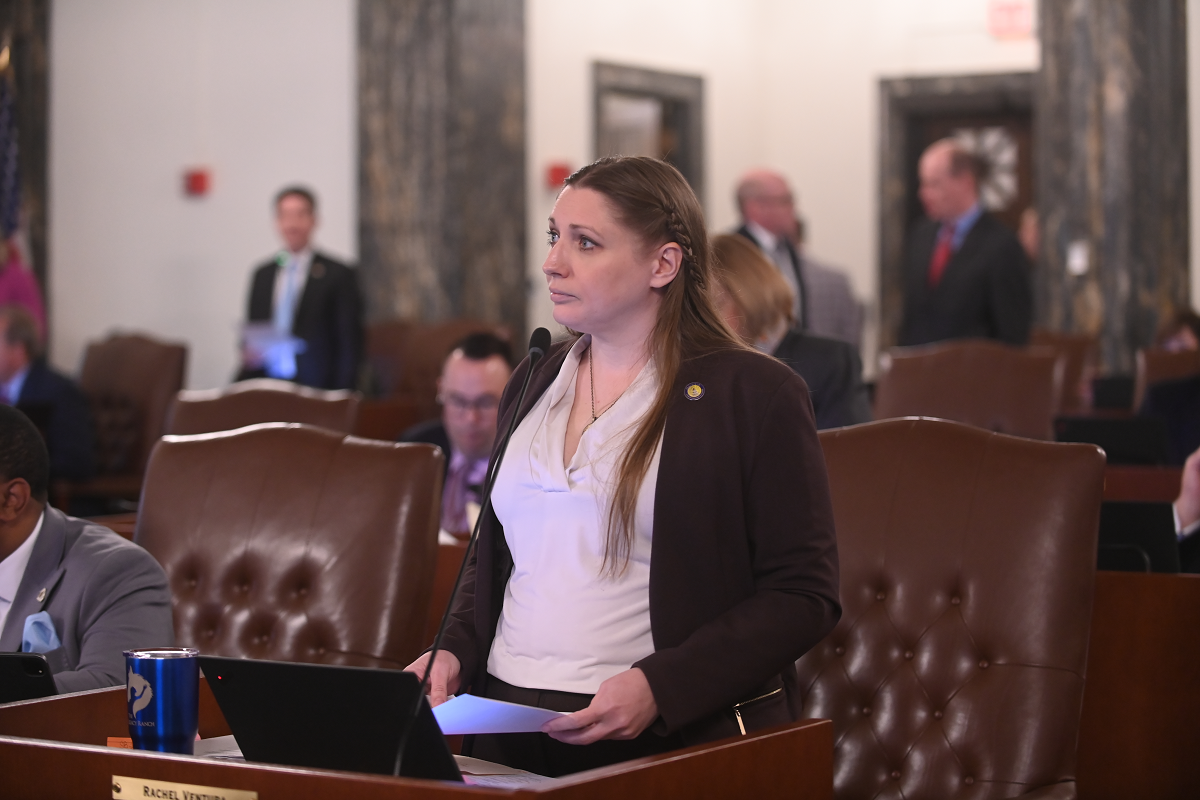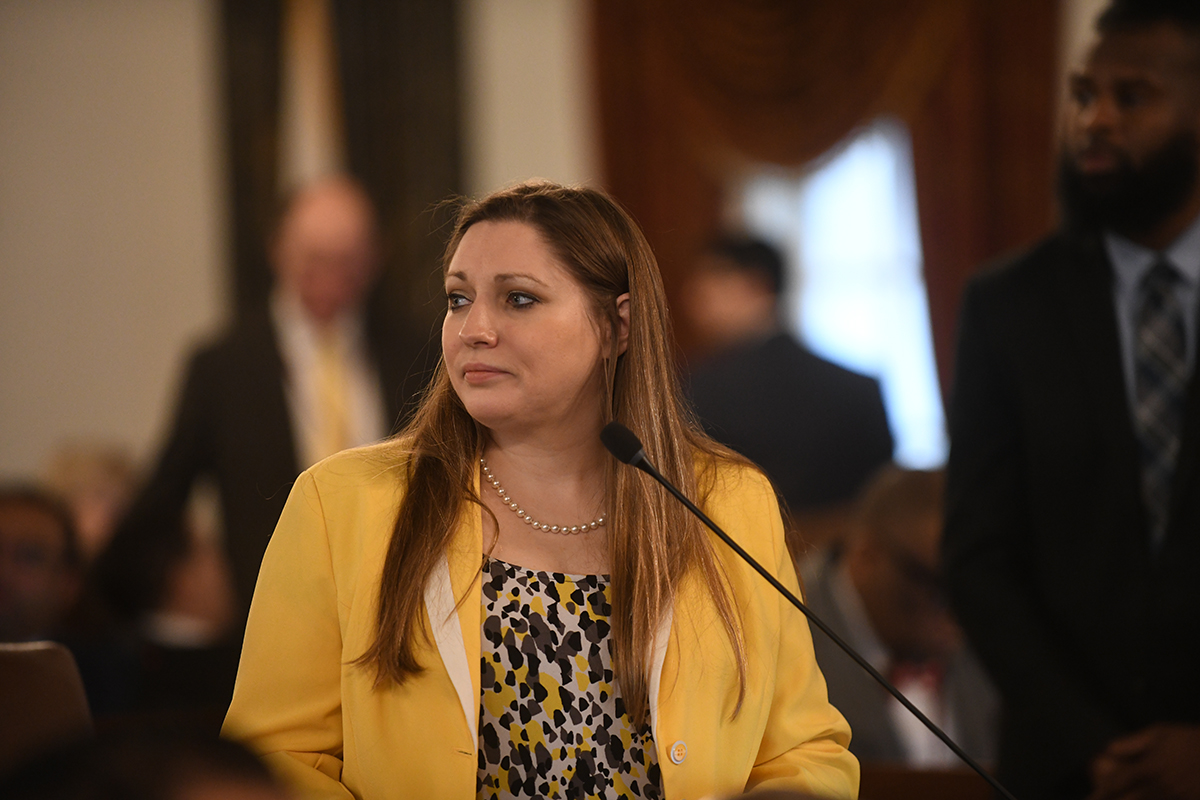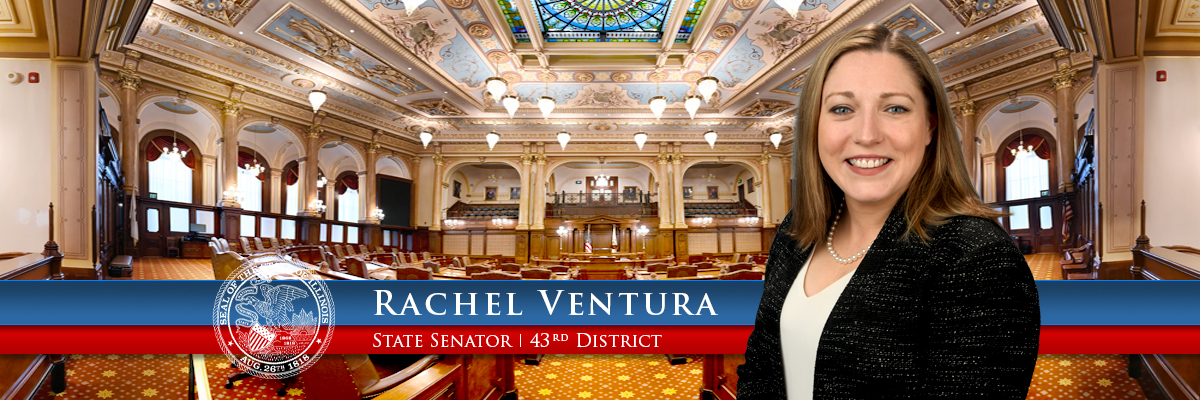- Details

SPRINGFIELD – Thanks to a new law introduced by State Senator Rachel Ventura, units of local government can now apply for loans through the Illinois Finance Authority Climate Bank in an effort to expand clean energy infrastructure while saving taxpayers money on interest rates.
“Every level of government needs to do their part when it comes to mitigating the effects of climate change,” said Ventura (D-Joliet). “Through the IFA bank, these low-rate loans to local government will not only save taxpayers money in the long run, but also address and tackle the effects of climate change.”
- Details
Originally published on My Journal Courier on Aug. 3, 2024
A new law awaiting the governor's signature would put more emphasis on mental health by requiring schools to have periods in which relaxation techniques are taught.
Senate Bill 2872 would require all schools to provide at least 20 minutes a week that focus on stress-relieving activities, outside of normal recess periods.
- Details

SPRINGFIELD – With anxiety and stress increasing in schools, State Senator Rachel Ventura championed a new law aimed at easing the growing stress that students face in classrooms, prioritizing their physical and emotional well-being to enhance focus and reduce anxiety during school hours.
“Just as adults have a multitude of stressors, students also have the pressure to constantly and consistently perform above average. Our children deserve just a few minutes for themselves. Purposeful relaxation time will empower students to develop effective stress and anxiety management strategies,” said Ventura (D-Joliet). “As both a parent and mental health advocate, I believe that allocating at least 20 minutes per week for students to unwind and prioritize their mental health will alleviate the constant pressure to engage in mental tasks, leading to improved academic performance.”
Senate Bill 2872 provides instruction for school districts on relaxation activities, such as mindful-based movements, yoga, stretching, meditation, breathing exercises, guided relaxation techniques, quiet time, walking, in-person conversation, and other stress-relieving activities, once a week for 20 minutes, in addition to recess, to enhance physical and emotional health.
- Details

JOLIET – Following IDOT’s decision to allow Route 53 access for the three warehouses that NorthPoint has built, State Senator Rachel Ventura released the following statement:
“I have continually echoed the concerns of residents on the NorthPoint Development. I have strongly been against this project due to environmental and health concerns, as well as the significant increased traffic that would come to an area that has already been burdened with increased trucking over the years.
“Following a meeting with IDOT's engineers to better understand their decision to allow permanent access, I wanted to provide transparency to residents that at this time this will cease the expansion of NorthPoint, halting their plans to expand beyond the three currently built structures. There will be no additional development east or west of IL 53 unless a connection to Millsdale Road is reestablished and then they would cease using IL Route 53. They would have to apply for a new permit and go through the process again for Millsdale.
“In addition to expansion denial, IDOT will closely monitor traffic increased by this decision and will take into account if it harms residents and daily commuters. While this is ultimately not what I advocated for or envisioned, I am confident that denying NorthPoint to expand is a win for our area.
“Furthermore, if NorthPoint does not adhere to these conditions, access would be revoked and they would have to pay to return the area back to the condition it was before access for these entrances was granted.”
More Articles …
Page 29 of 61





